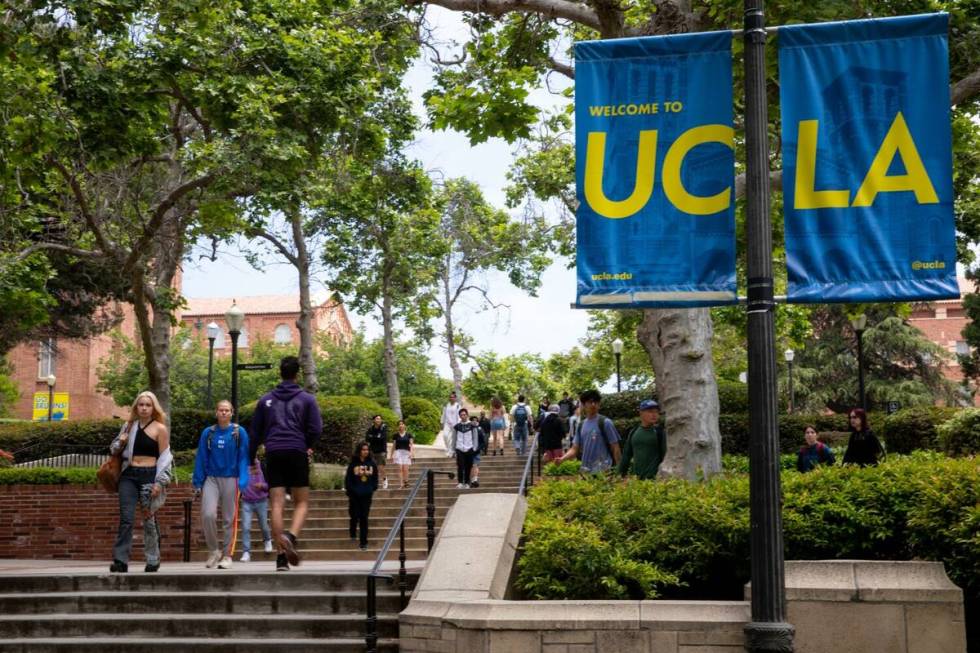UC regents delay action on proposal to tighten controls of political expression on campus websites

For the second consecutive meeting, University of California regents delayed action this past week on a proposal to tighten controls of political expression on campus websites, such as criticism of Israel, amid sharp disagreement about moving forward when myriad questions over how it would be rolled out and enforced remained unanswered.
Fallout from the Israel-Hamas war was evident throughout the Board of Regents meeting Wednesday at UCLA. UC President Michael V. Drake and board Chair Rich Leib, in prepared statements, decried rising acts of antisemitism on campuses.
Drake said UC had begun to work with Hillel International on training senior campus leaders to address antisemitism and other forms of bigotry and hatred.
During public comments, several Jewish speakers condemned growing harassment against faculty and students who support Israel, including a “barrage” of unjustified negative student evaluations of faculty, classes disrupted by protests, swastikas painted on buildings and signs calling Jews “the new Nazis.”
On the other side, one student urged regents to divest UC funds from firms that support the “ongoing genocide and ethnic cleansing” of Palestinians. Several others called for Palestinian freedom and later temporarily shut down discussion of the website proposal, chanting, “Shame on you!” as Regent Jay Sures tried to present it.
The proposal would ban commentaries from an academic unit’s main homepage and require them to be placed on a separate opinion page with a disclaimer that the comments don’t represent the university’s position.
Before publishing statements, campus departments must put them to an anonymous vote of their members and explain on behalf of whom the opinions speak. Departments also will be required to develop standards to govern the process.
Sures, vice chairman at United Talent Agency, has pushed for such action for the last few years, previously saying he has been troubled by “abuse” and “misuse” of departmental websites featuring anti-Israel sentiment and other opinions that do not reflect official university views.